10 Oct 2017 | Focolare Worldwide
In front of the situation that has been created in Catalonia, the Focolare Movement in Spain has launched a communiqué through which one commits to living a culture of dialogue, “a powerful tool that makes interests in others possible, entering into the reality they live, to know it, accept it and, inasmuch as possible, comprehend it. We consider plurality a positive challenge and enormous value.” Many initiatives are being promoted to solicit dialogue, especially with the political class. “We strongly support them, because we consider them to be signs of a mature democratic society that wagers on reconciliation.” The Focolare Movement in Spain simultaneously proposes a collection of signatures, in which the whole world can take part, with the goal of finding a path to peaceful coexistence in diversity, and the acknowldgement of the human dignity of every person and institution that represents them. It is a campaign of sensitization and commitment on the social network, under the hashtag #SoyDiálogo, which invites one and all to become active promotors of listening, respect, dialogue and peaceful actions.
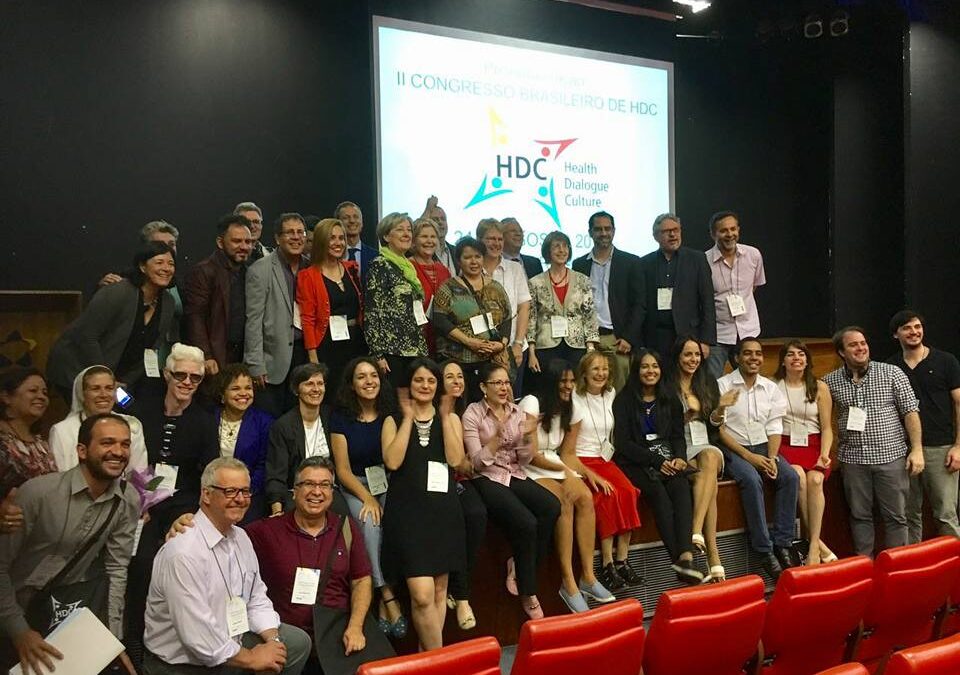
2 Oct 2017 | Focolare Worldwide
 Health as a common good and sustainability of care systems are topics healthcare operators have to face worldwide, especially with the progressive increase of the average life expectancy and the increased need for care. How can the sick be assisted in an effective and likewise sustainable manner? And also: is there a correlation between spirituality and the global health of a person? These were the themes discussed in the convention organised by the Health Dialogue Culture, an international network of healthcare practitioners established in 2003 to contribute through a vital dialogue with science, to a culture that respects life and the dignity and integrity of every person, in the perspective of the promotion of social and individual health. Inspired by the charism of unity of the focolare Movement, Health Dialogue Culture offers room for reflection in connection with practice, from which guidelines are to be drawn as a contribution to the debate on the need to create new paradigms for the healthcare systems. The congress was held as a continuing program with other previous events on the same theme, and particularly with the one held in Padua (Italy) in 2013, entitled What medicine: across globalization, sustainability and personalization of treatments, and with the Letter of Ethics which gathered the results.
Health as a common good and sustainability of care systems are topics healthcare operators have to face worldwide, especially with the progressive increase of the average life expectancy and the increased need for care. How can the sick be assisted in an effective and likewise sustainable manner? And also: is there a correlation between spirituality and the global health of a person? These were the themes discussed in the convention organised by the Health Dialogue Culture, an international network of healthcare practitioners established in 2003 to contribute through a vital dialogue with science, to a culture that respects life and the dignity and integrity of every person, in the perspective of the promotion of social and individual health. Inspired by the charism of unity of the focolare Movement, Health Dialogue Culture offers room for reflection in connection with practice, from which guidelines are to be drawn as a contribution to the debate on the need to create new paradigms for the healthcare systems. The congress was held as a continuing program with other previous events on the same theme, and particularly with the one held in Padua (Italy) in 2013, entitled What medicine: across globalization, sustainability and personalization of treatments, and with the Letter of Ethics which gathered the results. 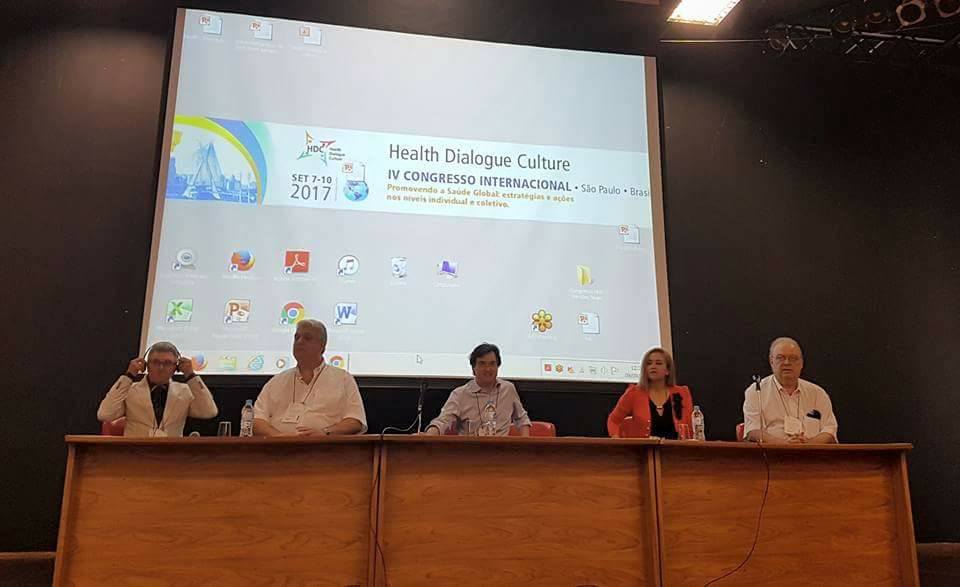 Among the new paradigms for the treatment of the sick person, the relational dimension is taking on an increasingly strategic role, that is, the set of relations at multiple levels (with the patients, among healthcare practitioners, and with the institutions) that revolve around the care issue. Long ignored in the drawing up of socio-healthcare models, also the spiritual dimension, wherever applied, has a substantial impact on the quality of life and the treatment outcomes. The Sao Paolo congress offered a structured programme with reports, labs, workshops, sharing of experiences and good practices, with a fruitful discussion on new methodologies to reach equity and accessibility to healthcare services at local and global levels. «The real challenge of this convention – the organisers said – was the cultural and professional wealth due to the variety of speakers and participants (over 270) and their coming from countries with the most diverse healthcare standards such as Congo, Cameroon, Norway, Venezuela, Chile, Paraguay, Uruguay, Benin, Amazon, Brazil, Dominican Republic, Spain, the UK, Italy and Austria. Particular attention was paid to the themes of disability, ageing, the methods in treating pain and suffering through palliative treatments and the training of operators (care for the caregivers).
Among the new paradigms for the treatment of the sick person, the relational dimension is taking on an increasingly strategic role, that is, the set of relations at multiple levels (with the patients, among healthcare practitioners, and with the institutions) that revolve around the care issue. Long ignored in the drawing up of socio-healthcare models, also the spiritual dimension, wherever applied, has a substantial impact on the quality of life and the treatment outcomes. The Sao Paolo congress offered a structured programme with reports, labs, workshops, sharing of experiences and good practices, with a fruitful discussion on new methodologies to reach equity and accessibility to healthcare services at local and global levels. «The real challenge of this convention – the organisers said – was the cultural and professional wealth due to the variety of speakers and participants (over 270) and their coming from countries with the most diverse healthcare standards such as Congo, Cameroon, Norway, Venezuela, Chile, Paraguay, Uruguay, Benin, Amazon, Brazil, Dominican Republic, Spain, the UK, Italy and Austria. Particular attention was paid to the themes of disability, ageing, the methods in treating pain and suffering through palliative treatments and the training of operators (care for the caregivers). 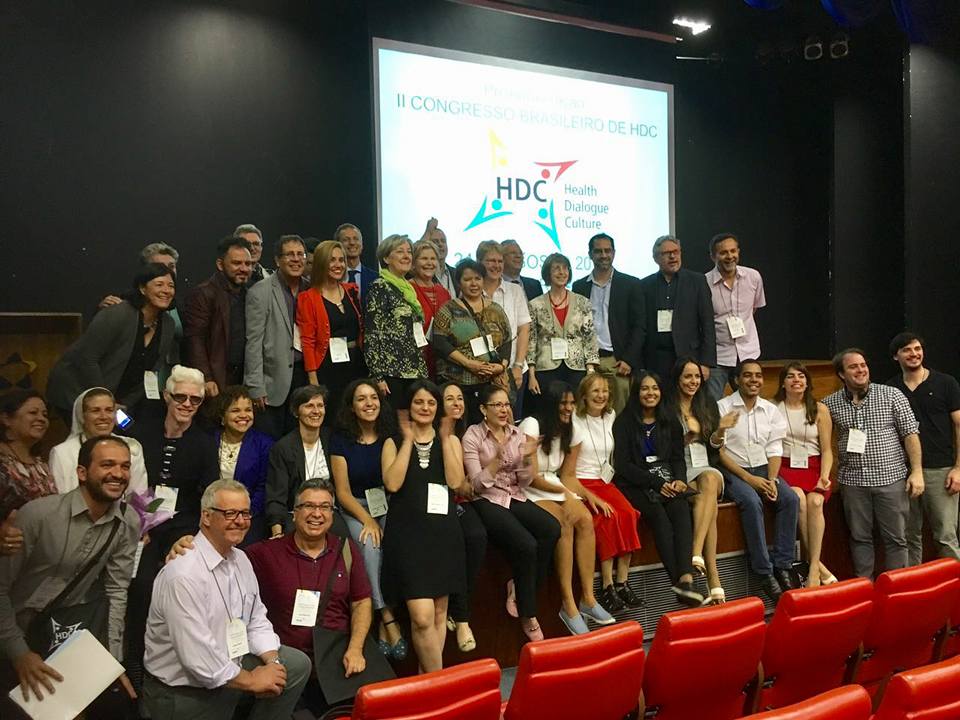 A specific programme was activated during the Congress with interactive sessions for students and young professionals of the biomedical area. A young student of medicine commented at the end of the works: “This congress has changed my ideas on medicine, with new ideas that make me a better person, and with the certainty that they also will make me a better professional.” A Brazilian doctor: “Science is not cold and distant. We have learned that we can practice science without forgetting the essence which unites us: Love.” Maria Voce, Focolare President, sent a message to the participants with the wish that they would “live their professions with a love that generates fraternity, all tending towards the good of the human family.” She recalled a phrase of Chiara Lubich was recalled: «Equilibrium of love lies in loving each single person next to us and working for the entire community from our own corner of life.”
A specific programme was activated during the Congress with interactive sessions for students and young professionals of the biomedical area. A young student of medicine commented at the end of the works: “This congress has changed my ideas on medicine, with new ideas that make me a better person, and with the certainty that they also will make me a better professional.” A Brazilian doctor: “Science is not cold and distant. We have learned that we can practice science without forgetting the essence which unites us: Love.” Maria Voce, Focolare President, sent a message to the participants with the wish that they would “live their professions with a love that generates fraternity, all tending towards the good of the human family.” She recalled a phrase of Chiara Lubich was recalled: «Equilibrium of love lies in loving each single person next to us and working for the entire community from our own corner of life.”
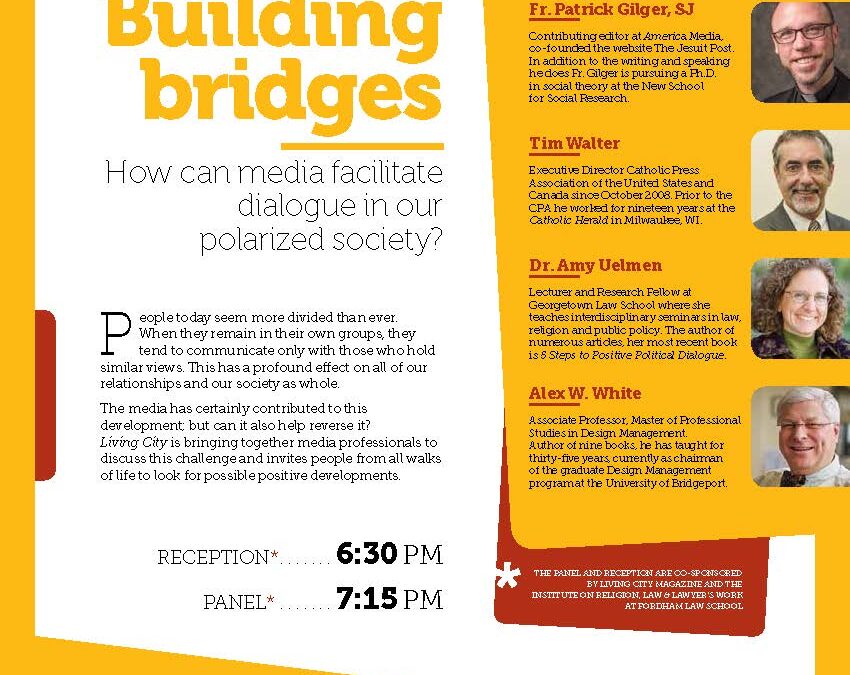
27 Sep 2017 | Focolare Worldwide
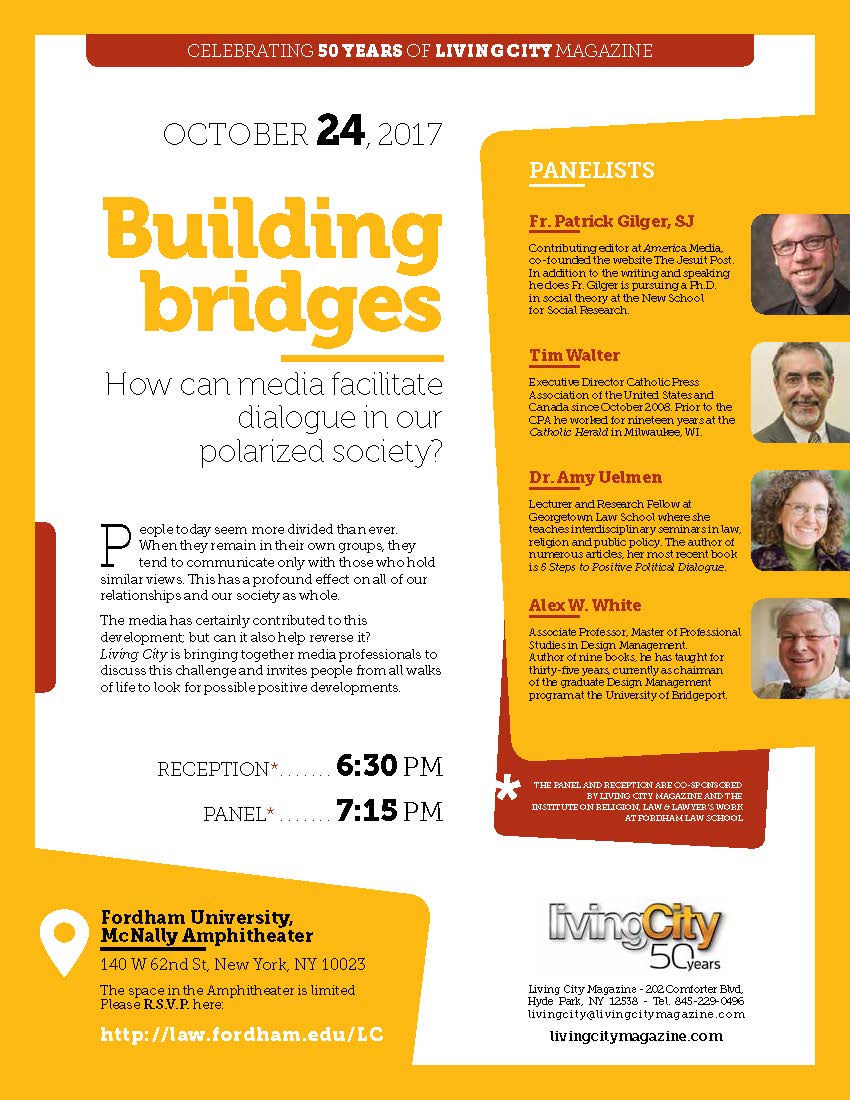 To celebrate its 50 years of activity, the English language magazine, founded in 1967 in New York as one of the 32 editions of the Focolare Movement, held a conference on 24 September entitled, “Building bridges: how can media facilitate dialogue in our polarised society?” at Fordham University in New York, with the contribution of professors and journalists. Living City is read and appreciated not only in the United States, but also in Canada, Australia, Ireland, Malta, New Zealand and many other English-speaking countries. Its readers are people of all ages and religious convictions. Recently it was awarded 5 prizes by the Catholic Press Association of North America.
To celebrate its 50 years of activity, the English language magazine, founded in 1967 in New York as one of the 32 editions of the Focolare Movement, held a conference on 24 September entitled, “Building bridges: how can media facilitate dialogue in our polarised society?” at Fordham University in New York, with the contribution of professors and journalists. Living City is read and appreciated not only in the United States, but also in Canada, Australia, Ireland, Malta, New Zealand and many other English-speaking countries. Its readers are people of all ages and religious convictions. Recently it was awarded 5 prizes by the Catholic Press Association of North America.
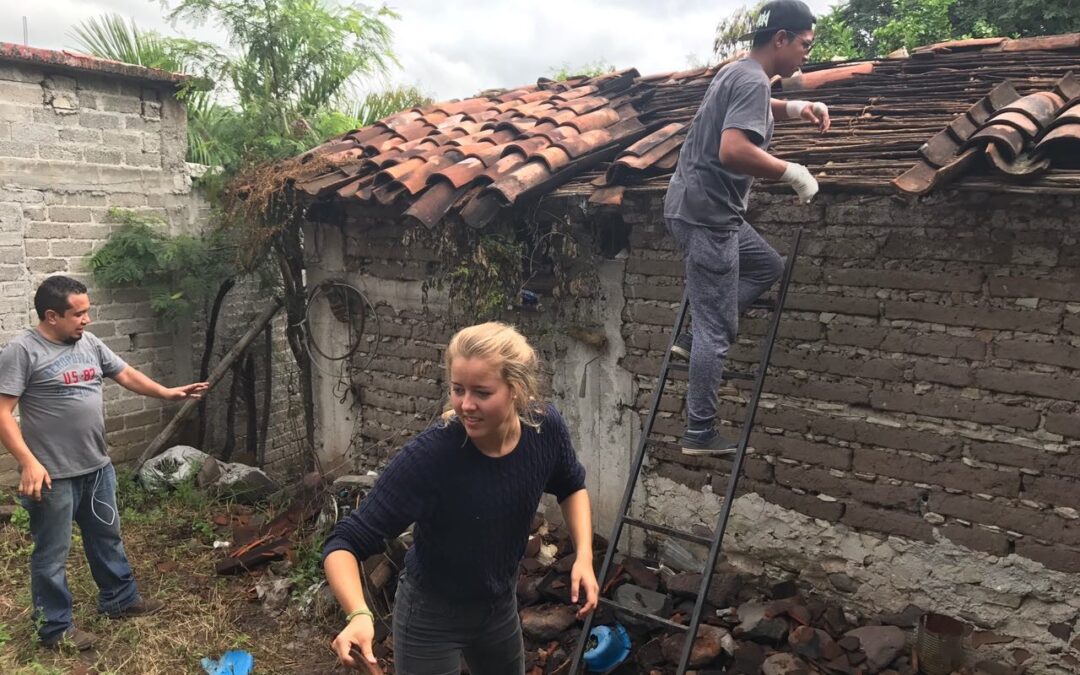
27 Sep 2017 | Focolare Worldwide
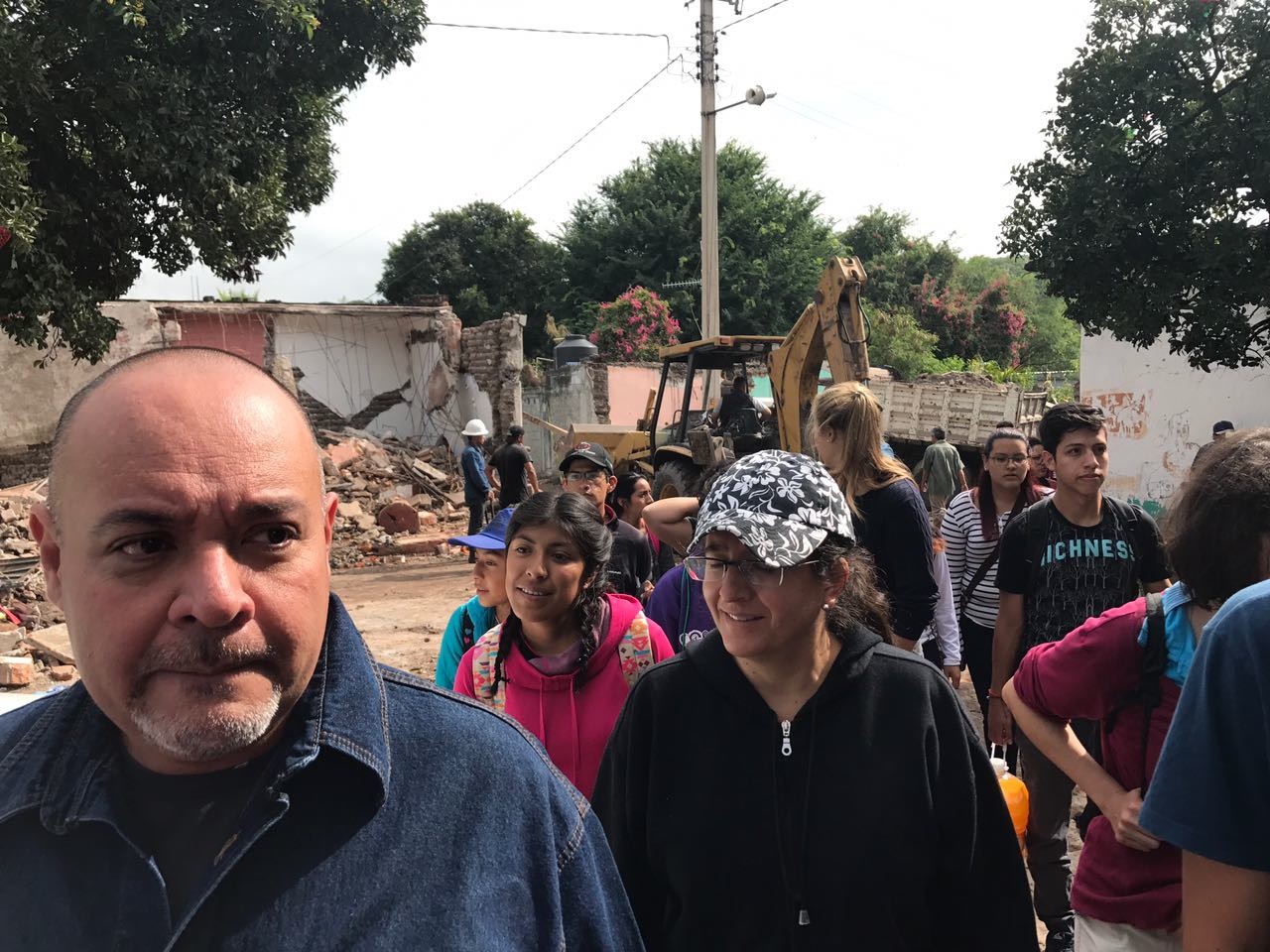 “Many of us stepped forward right away to help, along with the overwhelming majority of Mexican people, even though we were completely grasped by fear, as we tried to gather the requests for help that were coming in from every corner Mexico City and from the regions of the outback that were also hard hit. The strong sense of solidarity was everywhere. Hotels opened their doors to those who had lost homes. Doctors and psychologists offered services for free; families cooked and shared soup for everyone. Hundreds of volunteers worked hard without rest. They were all ordinary people who a few hours before were workers, sellers, housewives and employees. Once again in the midst of an emergency Mexicans showed their true colours, never losing hope and spreading joy and enthusiasm even amidst the darkest moments. Streams of people helped out in simple ways, giving the appearance of a living giant rising from the dust.
“Many of us stepped forward right away to help, along with the overwhelming majority of Mexican people, even though we were completely grasped by fear, as we tried to gather the requests for help that were coming in from every corner Mexico City and from the regions of the outback that were also hard hit. The strong sense of solidarity was everywhere. Hotels opened their doors to those who had lost homes. Doctors and psychologists offered services for free; families cooked and shared soup for everyone. Hundreds of volunteers worked hard without rest. They were all ordinary people who a few hours before were workers, sellers, housewives and employees. Once again in the midst of an emergency Mexicans showed their true colours, never losing hope and spreading joy and enthusiasm even amidst the darkest moments. Streams of people helped out in simple ways, giving the appearance of a living giant rising from the dust. 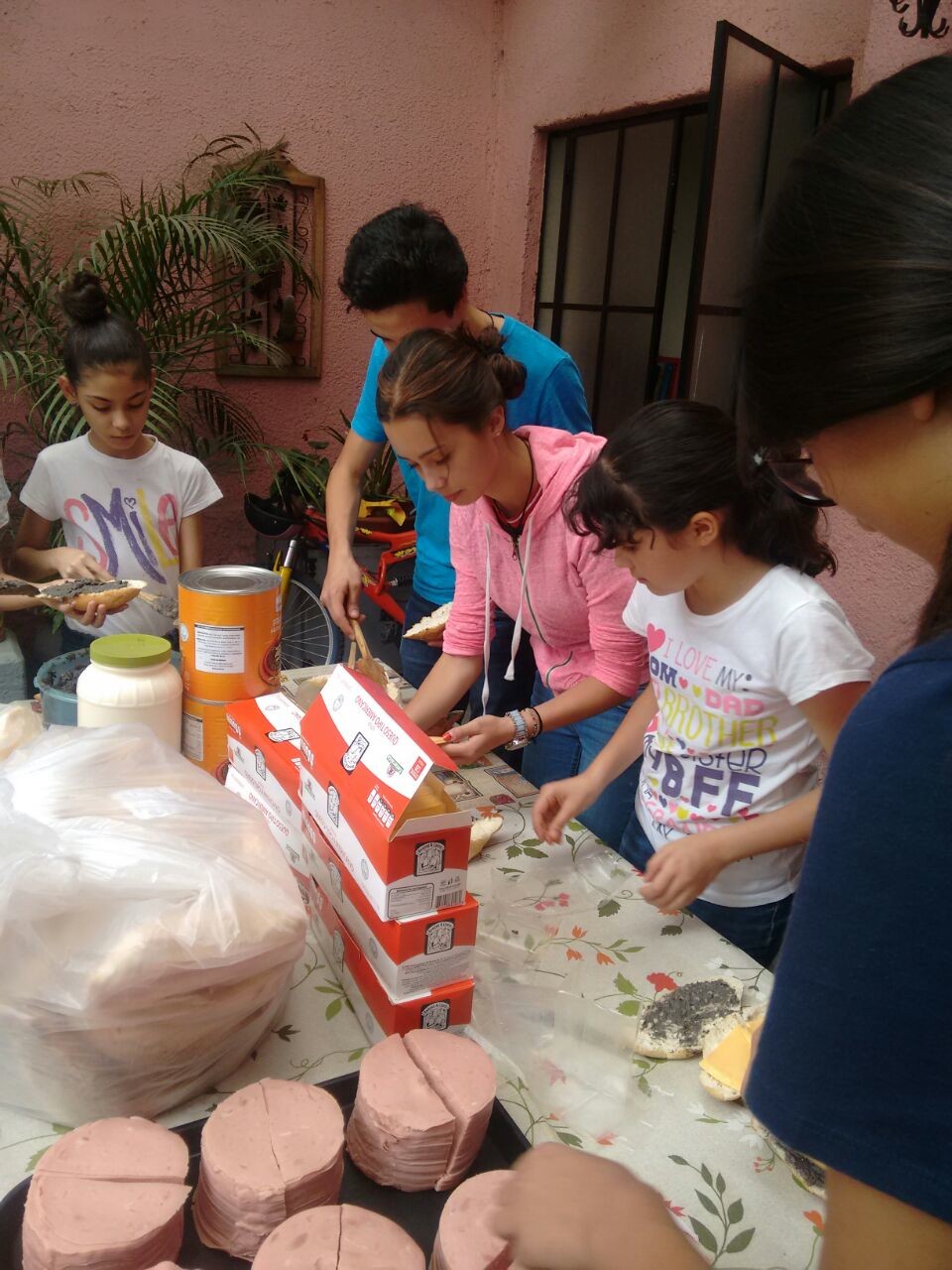 The disaster has also hit cities, such Puebla, Mexico City, Morelos, Chiapas and Oaxaca. Several members of our community offered their help, especially in Puebla and Morelos and other towns where assistance arrived more slowly. One family from Mexico City set up a collection centre in their own home, and then moved to Morelos to distribute foodstuffs and basic necessities to the neediest among the people. The young people from Mariapolis El Diamante went to Contla, located in the State of Pueblo, which was very hard hit by the earthquake. They removed rubble, loaded and delivered foodstuffs, and consoled those who had lost everything. To reach this particular community, which is located in a place that is hard to reach, they had to cross a river and pass over a deep ravine on a rope bridge they constructed on the spot. Meanwhile, the Economy of Communion group from Puebla organized an assistance project at Sant’Antonio Alponocan in another community of the region. Finally, with the goal of coordinating the efforts, we created an emergency committee in Mexico City that launched a census of the damage and of the needs.
The disaster has also hit cities, such Puebla, Mexico City, Morelos, Chiapas and Oaxaca. Several members of our community offered their help, especially in Puebla and Morelos and other towns where assistance arrived more slowly. One family from Mexico City set up a collection centre in their own home, and then moved to Morelos to distribute foodstuffs and basic necessities to the neediest among the people. The young people from Mariapolis El Diamante went to Contla, located in the State of Pueblo, which was very hard hit by the earthquake. They removed rubble, loaded and delivered foodstuffs, and consoled those who had lost everything. To reach this particular community, which is located in a place that is hard to reach, they had to cross a river and pass over a deep ravine on a rope bridge they constructed on the spot. Meanwhile, the Economy of Communion group from Puebla organized an assistance project at Sant’Antonio Alponocan in another community of the region. Finally, with the goal of coordinating the efforts, we created an emergency committee in Mexico City that launched a census of the damage and of the needs. 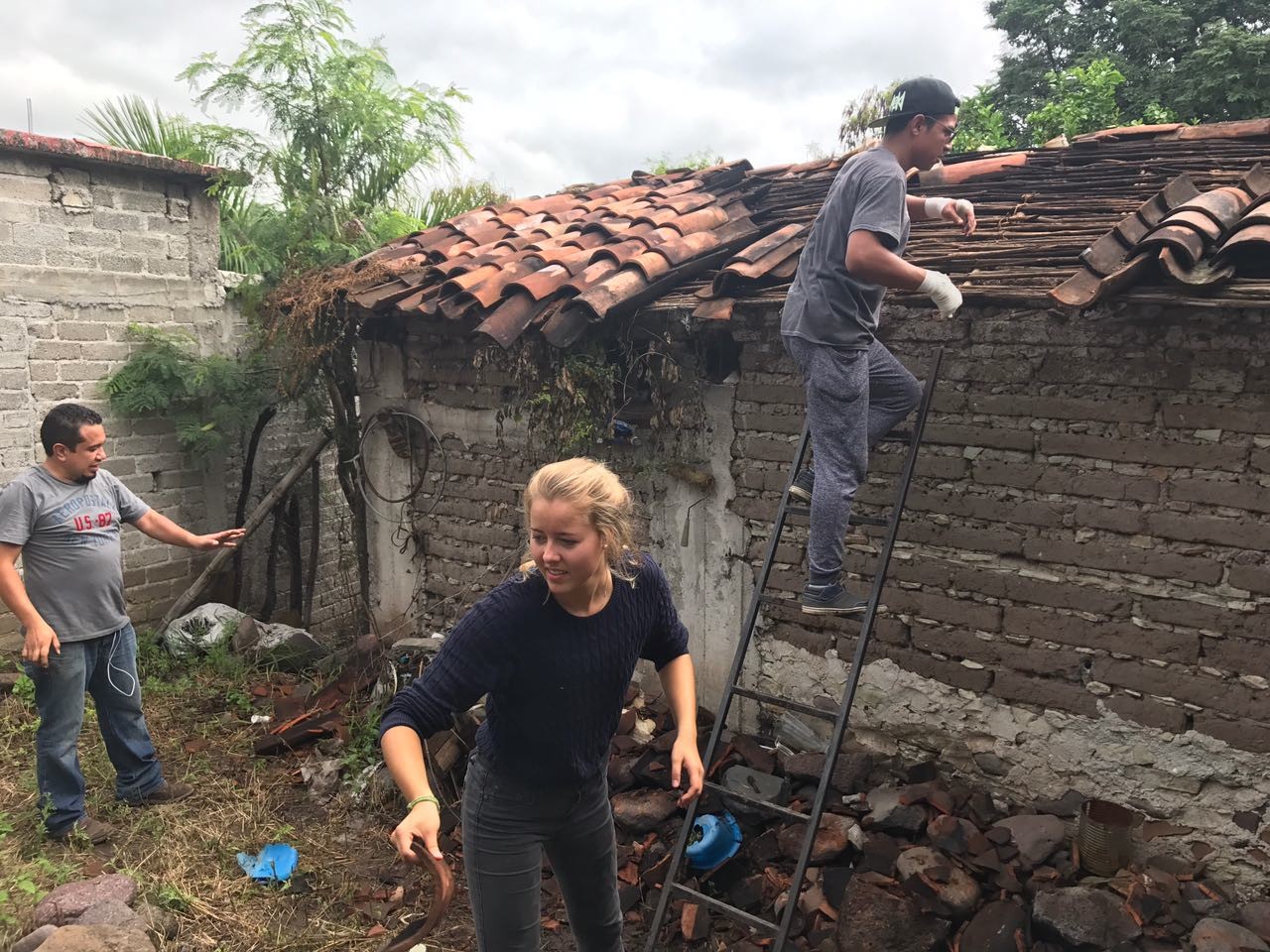 In those hard moments we always kept in mind the words that Our Lady of Guadalupe spoke to San Juan Diego on Mt Tepeyac, asking him to remember them always: ‘Put this in your heart, my small son: Don’t be afraid. Am I not here who am your Mother? Are you not in my shadow, under my protection? Am I not the source of your joy? Are you not in the folds of my mantle, in my embrace? Is there anything else you could need?’” All of us in the Focolare have strengthened our commitment to work for love and brotherhood, for both the physical and spiritual reconstruction of our land.” Mexico City, September 25, 2017
In those hard moments we always kept in mind the words that Our Lady of Guadalupe spoke to San Juan Diego on Mt Tepeyac, asking him to remember them always: ‘Put this in your heart, my small son: Don’t be afraid. Am I not here who am your Mother? Are you not in my shadow, under my protection? Am I not the source of your joy? Are you not in the folds of my mantle, in my embrace? Is there anything else you could need?’” All of us in the Focolare have strengthened our commitment to work for love and brotherhood, for both the physical and spiritual reconstruction of our land.” Mexico City, September 25, 2017
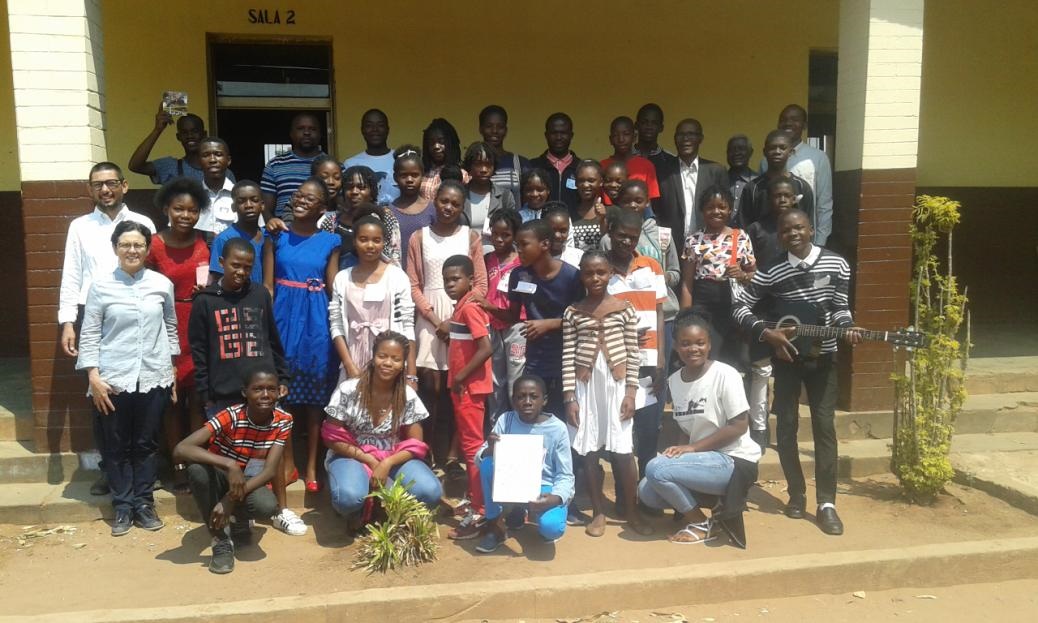
26 Sep 2017 | Focolare Worldwide
 Small groups comprised of young people and adults from different callings in the Focolare Movement spend brief periods in temporary communities known in Italian as “focolares” or “hearths,” far from their homes, visiting far-away and sometimes isolated communities around the globe. This year, there were forty such hearths from Sri Lanka to the Azores, from Vietnam to Santo Domingo, from Brazil to Tanzania. They were self-financed with lots of personal sacrifice. Each community has a different story, but they all share one common denominator: the presence of a temporary hearth that helps bring new life. Idalina and Toni are a family from Portugal. They and seven other people, including some young people, left in August for Saurimo, Angola. “We stayed at the Bishop’s house, and shared our meals and many other moments of the day with him.” During their two-week stay they formed many friendships with the children and adults of the local community: “At the end of the fourteen days, they asked us when we would come back again.” Chiara Lubich’s art of loving turned out to be a great discovery for them.”
Small groups comprised of young people and adults from different callings in the Focolare Movement spend brief periods in temporary communities known in Italian as “focolares” or “hearths,” far from their homes, visiting far-away and sometimes isolated communities around the globe. This year, there were forty such hearths from Sri Lanka to the Azores, from Vietnam to Santo Domingo, from Brazil to Tanzania. They were self-financed with lots of personal sacrifice. Each community has a different story, but they all share one common denominator: the presence of a temporary hearth that helps bring new life. Idalina and Toni are a family from Portugal. They and seven other people, including some young people, left in August for Saurimo, Angola. “We stayed at the Bishop’s house, and shared our meals and many other moments of the day with him.” During their two-week stay they formed many friendships with the children and adults of the local community: “At the end of the fourteen days, they asked us when we would come back again.” Chiara Lubich’s art of loving turned out to be a great discovery for them.” 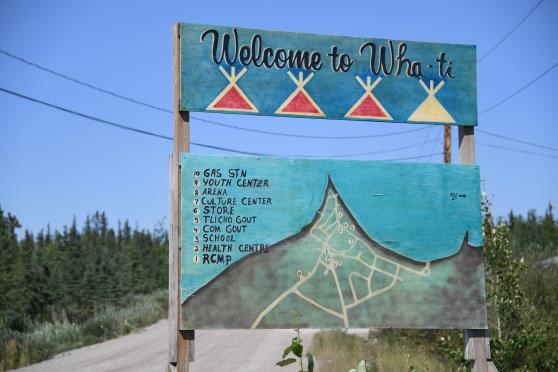 At Yellowknife, the main city of the region and Seat of the Diocese, we were welcomed by the Emeritus Bishop who has spent his life among the Native American populations of the north. Coming back from a month among Native Americans in Canada’s North West Territories, Father Harry Clark, a priest from British Columbia, Marilena and Mike Murray, a husband and wife from the state of Maryland, in USA, Maria Santana from Montreal and Ljubica Dekic from Toronto write: “From there, we took off for Wha Ti, one of four villages of the Tlicho Tribe, 40 minutes by plane. We were guests of the parish rectory. The villagers were simple folk and very reserved. One of the problems in the tribe is the communication gap between the elderly, who are rooted in Native American culture and the younger generations, who no longer use the tribe’s native language. We presented the spirituality of communion, and then focused our attention on the activities of the small Catholic community for children and adults. We also met some Lutherans and a couple of Mennonite missionaries, a very nice collaboration was begun. We went by canoe along the river and took part in some tribal events with the annual assembly of villages that happened to be taking place during that time.”
At Yellowknife, the main city of the region and Seat of the Diocese, we were welcomed by the Emeritus Bishop who has spent his life among the Native American populations of the north. Coming back from a month among Native Americans in Canada’s North West Territories, Father Harry Clark, a priest from British Columbia, Marilena and Mike Murray, a husband and wife from the state of Maryland, in USA, Maria Santana from Montreal and Ljubica Dekic from Toronto write: “From there, we took off for Wha Ti, one of four villages of the Tlicho Tribe, 40 minutes by plane. We were guests of the parish rectory. The villagers were simple folk and very reserved. One of the problems in the tribe is the communication gap between the elderly, who are rooted in Native American culture and the younger generations, who no longer use the tribe’s native language. We presented the spirituality of communion, and then focused our attention on the activities of the small Catholic community for children and adults. We also met some Lutherans and a couple of Mennonite missionaries, a very nice collaboration was begun. We went by canoe along the river and took part in some tribal events with the annual assembly of villages that happened to be taking place during that time.”  In Bambio, 300 kilometres from Bangui, in the Central African Republic, one temporary “focolare” met a group of Pygmies that has been living the ideal of unity for twenty years. Fidelia writes: “The Pygmies possess so many beautiful values: loyalty, monogamy, purity a sense of the sacred. They told us their experiences in living the art of loving and the Word of Life. Each village meets once a week, from six o’clock in the morning until eight o’clock, before the day begins. The told us: “The focolare taught us to live, to love, to make ourselves one with others. There is no longer ‘you’ and ‘us’ – we’re all ‘us’. The Pygmies don’t mix with others, because they look down on us. But the focolare looked at us as equals and came to live with us, to share our sorrows and joys. They didn’t ask us to become Catholics, but they taught us love.” Someone else said: “We Pygmies have many traditional practices. But ever since we’ve been we’ve been part of the focolare, we’ve dropped a few of them. For example, when my son got sick, I didn’t turn to the witch doctor has I had done before, but took him to hospital. As soon as the focolarinies heard, they came to help me until he was well again.” The gratitude and enrichment was mutual, as the awareness that we’re one family is growing.
In Bambio, 300 kilometres from Bangui, in the Central African Republic, one temporary “focolare” met a group of Pygmies that has been living the ideal of unity for twenty years. Fidelia writes: “The Pygmies possess so many beautiful values: loyalty, monogamy, purity a sense of the sacred. They told us their experiences in living the art of loving and the Word of Life. Each village meets once a week, from six o’clock in the morning until eight o’clock, before the day begins. The told us: “The focolare taught us to live, to love, to make ourselves one with others. There is no longer ‘you’ and ‘us’ – we’re all ‘us’. The Pygmies don’t mix with others, because they look down on us. But the focolare looked at us as equals and came to live with us, to share our sorrows and joys. They didn’t ask us to become Catholics, but they taught us love.” Someone else said: “We Pygmies have many traditional practices. But ever since we’ve been we’ve been part of the focolare, we’ve dropped a few of them. For example, when my son got sick, I didn’t turn to the witch doctor has I had done before, but took him to hospital. As soon as the focolarinies heard, they came to help me until he was well again.” The gratitude and enrichment was mutual, as the awareness that we’re one family is growing.
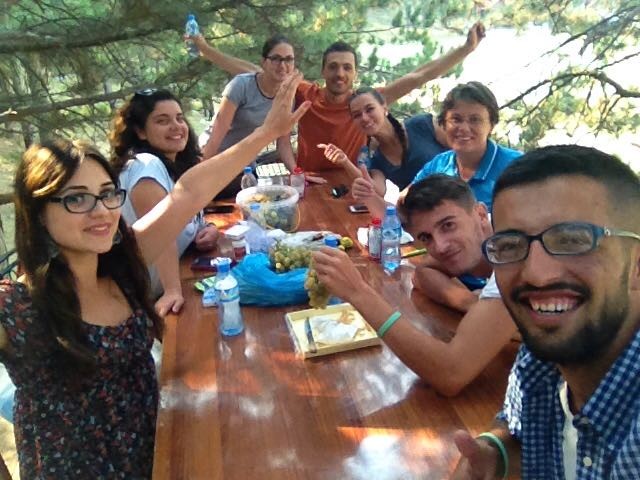
21 Sep 2017 | Focolare Worldwide
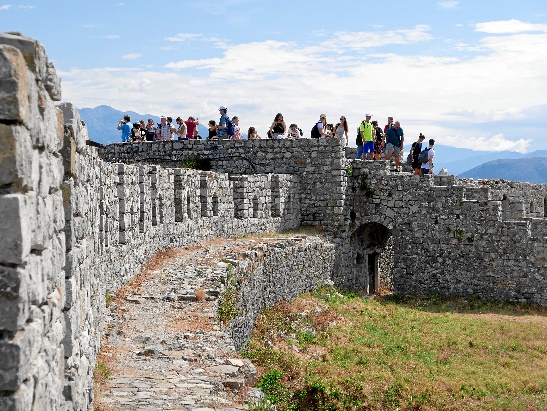 “Sunday 20 August, 2017, 5:00 a.m. From afar, I hear the call to prayer of the muezzin. The thermometer already reads 30°C. I am in a tiny log cabin in the small Village for Peace in Shkodër, in Albania. Built by the Catholic Church for the refugees during the second Balkan war at the end of 1999, it now hosts our camp, go4peace.” So begins the narrative journal of Meinolf Wacker, a young German priest, who for more than 20 years has been involved, along with other priests of the Focolare Movement, in the Balkans – a land marred by wars and divisions – in organizing “schools of peace” for hundreds of young people. His first thought in the morning is of the previous evening, just a few hours ago, and of the huge concert prepared by the youth on the square of the cathedral of Shkodër. At the conclusion of the concert, Mark, who comes from Ireland, gave voice to their appeal: “We are here from the North and the South, from the East and the West of Europe. Peace is a goal we must reach, and we must see in each person a brother or a sister. If we love each other, peace will be the outcome. It takes passion, patience, and tenacity. We want to become a generation full of passion for peace.”
“Sunday 20 August, 2017, 5:00 a.m. From afar, I hear the call to prayer of the muezzin. The thermometer already reads 30°C. I am in a tiny log cabin in the small Village for Peace in Shkodër, in Albania. Built by the Catholic Church for the refugees during the second Balkan war at the end of 1999, it now hosts our camp, go4peace.” So begins the narrative journal of Meinolf Wacker, a young German priest, who for more than 20 years has been involved, along with other priests of the Focolare Movement, in the Balkans – a land marred by wars and divisions – in organizing “schools of peace” for hundreds of young people. His first thought in the morning is of the previous evening, just a few hours ago, and of the huge concert prepared by the youth on the square of the cathedral of Shkodër. At the conclusion of the concert, Mark, who comes from Ireland, gave voice to their appeal: “We are here from the North and the South, from the East and the West of Europe. Peace is a goal we must reach, and we must see in each person a brother or a sister. If we love each other, peace will be the outcome. It takes passion, patience, and tenacity. We want to become a generation full of passion for peace.” 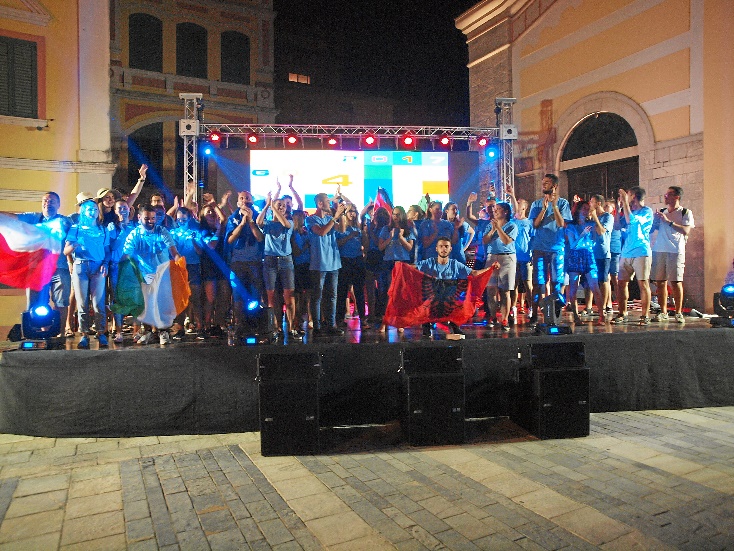 The members of the band that played that night come from Albania, Cameroon, Slovenia, Spain, and Germany, after no small difficulty. The Germans, for example, once they had arrived in Sarajevo, crossed the mountainous region of Montenegro in a rental van, almost a 40 hour drive. They had not even the time to catch their breath when they were divided into small groups to get to know one another. Every day, there was a motto to live by. “Don’t stop giving!” for example. But even looking at nature could inspire a new motto, like seeing a cow resting in the field, taking her time as she chewed her cud. In a hectic, frenzied world, one needs to stop every once in a while, and “ruminate” interiorly on whatever God wants to say to us.
The members of the band that played that night come from Albania, Cameroon, Slovenia, Spain, and Germany, after no small difficulty. The Germans, for example, once they had arrived in Sarajevo, crossed the mountainous region of Montenegro in a rental van, almost a 40 hour drive. They had not even the time to catch their breath when they were divided into small groups to get to know one another. Every day, there was a motto to live by. “Don’t stop giving!” for example. But even looking at nature could inspire a new motto, like seeing a cow resting in the field, taking her time as she chewed her cud. In a hectic, frenzied world, one needs to stop every once in a while, and “ruminate” interiorly on whatever God wants to say to us.  “At the beginning of the camp,” writes Meinolf, “we stopped on the famous Mes Bridge, in the town of Mes. Standing united, hand in hand, all the participants, Muslims, Protestants, Catholics, or of other worldviews, we entrusted ourselves to the mystery of God, in silence. During the week there were 31 workshops that gave the youth the chance to come into contact with the people of that town. Each day more than a hundred children awaited us in Fermentim, on the periphery of Shkodër, where a community of sisters works daily.” Here the youth make key chains and work on the painting and flooring of the nursery school and the house of a family. “Other stops on the tour included the Museum of St Stephen’s Cathedral, in Shkodër, where we remembered the 38 martyrs killed during the communist regime from 1945 to 1974, the Museum of Memory with the horrors committed in those years, and the visit to a mosque. In an interreligious workshop we talked about the relationships between religions in the Balkans. We also planted some trees, painted a few houses in the village, and met the children entrusted to the sisters of Mother Teresa. The day always ended with a festive dinner in the village. “Along with Christoph and Tobias from the agency, 18frames Film+Media Produktion from Hamburg, we prepared the campaign, ‘Yourope,’ in order to engage young Europeans in ‘showing their face’ to demonstrate a Europe without barriers. A videoclip made during the camp, with our faces on a black background, ends with the invitation to send us other brief videos with the same initial phrase: I show my face … Armela took a small mascot from my car – a moose – put it on her shoulders and continued: I show my face because I am from Albania, studying in Austria, sitting in a French car with a German driver and a young friend from Sweden. In a few days more than 50 thousand people had viewed the clip.” Two participants share: “When I heard, a year ago, that the camp would be held at Shkodër, I was skeptical. I come from Albania and I know the mentality of my country. Throughout the preparations, I helped as much as I could. The first two days went well. But when the workshops began, there was so much confusion. ‘Welcome to the chaos!’ I thought. But then, everything turned out differently from how I had imagined it. At the end of the closing concert, I had to explain the campaign, ‘Yourope.’ I could see true joy in the eyes of everyone in the audience! Love had been stronger than the obstacles!” “The evening masses were not empty rituals, but deep faith lived out, which overwhelmed me. The explanations on the meaning of suffering and on the encounter with Jesus in suffering helped me a lot, and I continued to ‘ruminate’ on these for a long time.” See video clip
“At the beginning of the camp,” writes Meinolf, “we stopped on the famous Mes Bridge, in the town of Mes. Standing united, hand in hand, all the participants, Muslims, Protestants, Catholics, or of other worldviews, we entrusted ourselves to the mystery of God, in silence. During the week there were 31 workshops that gave the youth the chance to come into contact with the people of that town. Each day more than a hundred children awaited us in Fermentim, on the periphery of Shkodër, where a community of sisters works daily.” Here the youth make key chains and work on the painting and flooring of the nursery school and the house of a family. “Other stops on the tour included the Museum of St Stephen’s Cathedral, in Shkodër, where we remembered the 38 martyrs killed during the communist regime from 1945 to 1974, the Museum of Memory with the horrors committed in those years, and the visit to a mosque. In an interreligious workshop we talked about the relationships between religions in the Balkans. We also planted some trees, painted a few houses in the village, and met the children entrusted to the sisters of Mother Teresa. The day always ended with a festive dinner in the village. “Along with Christoph and Tobias from the agency, 18frames Film+Media Produktion from Hamburg, we prepared the campaign, ‘Yourope,’ in order to engage young Europeans in ‘showing their face’ to demonstrate a Europe without barriers. A videoclip made during the camp, with our faces on a black background, ends with the invitation to send us other brief videos with the same initial phrase: I show my face … Armela took a small mascot from my car – a moose – put it on her shoulders and continued: I show my face because I am from Albania, studying in Austria, sitting in a French car with a German driver and a young friend from Sweden. In a few days more than 50 thousand people had viewed the clip.” Two participants share: “When I heard, a year ago, that the camp would be held at Shkodër, I was skeptical. I come from Albania and I know the mentality of my country. Throughout the preparations, I helped as much as I could. The first two days went well. But when the workshops began, there was so much confusion. ‘Welcome to the chaos!’ I thought. But then, everything turned out differently from how I had imagined it. At the end of the closing concert, I had to explain the campaign, ‘Yourope.’ I could see true joy in the eyes of everyone in the audience! Love had been stronger than the obstacles!” “The evening masses were not empty rituals, but deep faith lived out, which overwhelmed me. The explanations on the meaning of suffering and on the encounter with Jesus in suffering helped me a lot, and I continued to ‘ruminate’ on these for a long time.” See video clip
















